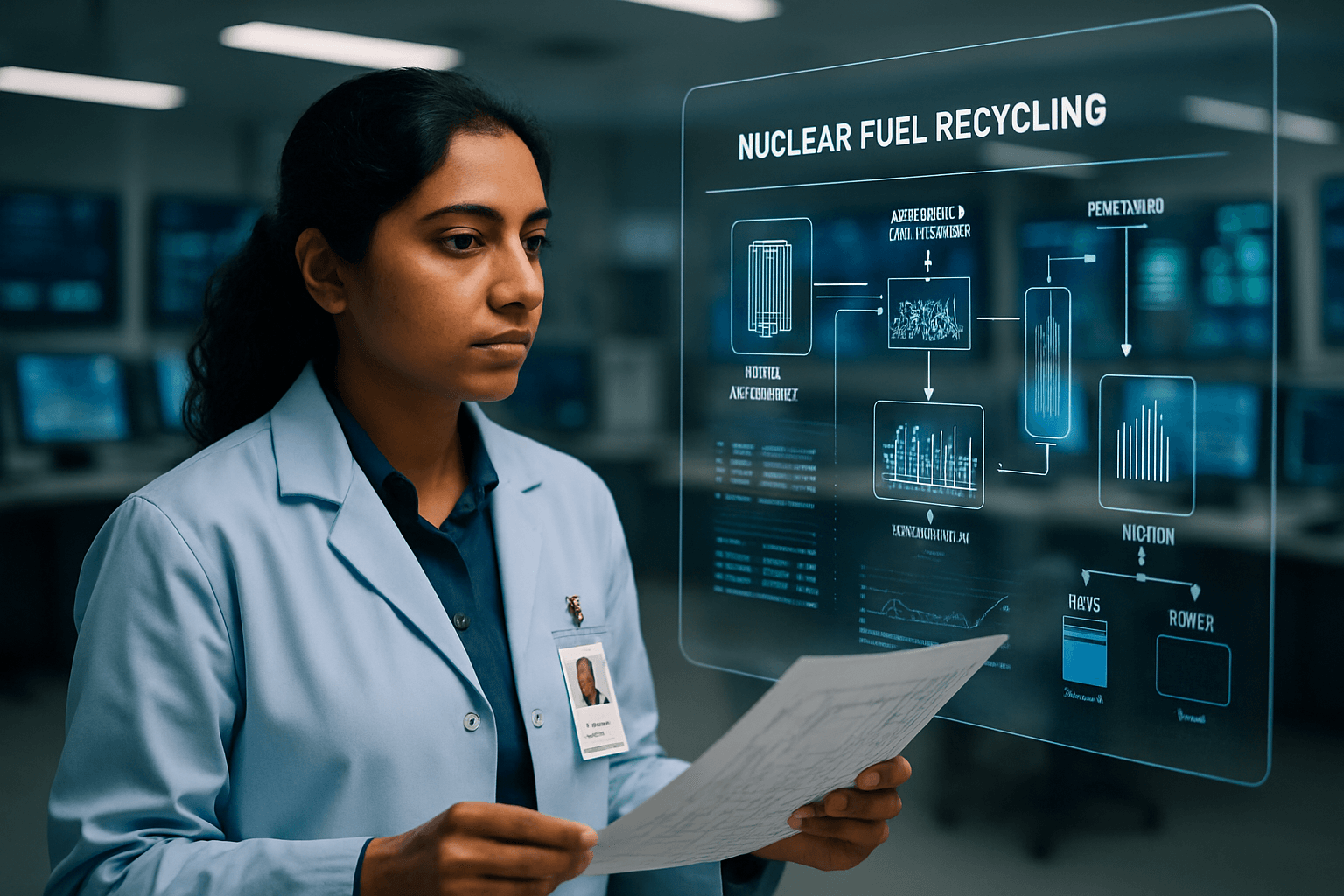Oklo Inc., an advanced nuclear technology company, has announced its plans to design, build, and operate the first privately funded nuclear fuel recycling facility in the United States. This significant initiative, part of an advanced fuel center in Tennessee, represents an investment of up to $1.68 billion and is expected to create over 800 high-quality jobs. The facility aims to transform used nuclear fuel into new fuel for advanced fast reactors, such as Oklo’s Aurora powerhouse, marking a pivotal step toward enhancing U.S. energy independence and addressing nuclear waste challenges.
The announcement highlights a strategic move to establish a durable domestic fuel supply and reduce the volume of high-level nuclear waste. Oklo is also exploring a partnership with the Tennessee Valley Authority (TVA) to recycle the utility’s used fuel, potentially marking the first time a U.S. utility has explored converting its used nuclear fuel into clean electricity using modern electrochemical processes.
A New Era for Nuclear Fuel Management
The establishment of this recycling facility signals a transformative shift in the U.S. nuclear energy sector. Currently, the nation faces challenges with over 90,000 metric tons of spent nuclear fuel stored at various sites across the country, with no permanent geologic repository in operation. Oklo’s approach seeks to convert this existing “waste” into a valuable energy resource, recovering usable fuel material and significantly reducing waste volumes for more economical and efficient disposal pathways.
Tackling Nuclear Waste: From Liability to Asset
Nuclear fuel recycling has long been a subject of debate in the U.S., with concerns about proliferation risks. However, advanced recycling techniques, such as those proposed by Oklo, are designed to keep transuranic materials together, making them proliferation-resistant and suitable for fueling fast reactors. This method extracts more than 90% of the remaining potential energy from used fuel, which is otherwise discarded. Oklo estimates that the energy recoverable from the nation’s stored used nuclear fuel is equivalent to approximately 1.3 trillion barrels of oil.
Oklo’s Advanced Reactor Technology: The Aurora Powerhouse
The recycled fuel from the new facility will power Oklo’s advanced fast reactors, known as the Aurora powerhouse. These reactors represent a next-generation nuclear design, utilizing a liquid metal-cooled, metal-fueled fast reactor technology.
Key Features of the Aurora Powerhouse
- Fast Neutron Spectrum: The Aurora design harnesses energy from fast neutrons, allowing for higher fuel burnup and greater fuel efficiency compared to traditional light water reactors.
- Metallic Fuel Design: The use of metallic uranium fuel contributes to greater fuel density and reduced fabrication costs.
- Inherent Safety: Oklo’s reactors are designed with robust inherent safety features, making them self-stabilizing and passively safe. This “walk-away safe” design means the reactor’s temperature automatically stabilizes even during a complete loss of power and coolant flow, building on decades of demonstrated technology.
- Waste-to-Energy Conversion: A core capability of the Aurora powerhouse is its ability to use recycled nuclear fuel, effectively converting nuclear waste into clean energy and significantly reducing the need for new uranium mining.
- Scalable Power Output: While initial designs of the Aurora powerhouse aimed for 1.5 MWe of electrical power, Oklo has revealed larger designs, with the capacity to produce up to 75 MWe, to meet growing demand from sectors like data centers.
Regulatory Progress and Future Outlook
Oklo has made significant strides in the regulatory landscape. The company completed a licensing project plan for the fuel recycling facility with the U.S. Nuclear Regulatory Commission (NRC) and is actively engaged in pre-application discussions with the regulator’s staff. Production of metal fuel for the Aurora powerhouses is anticipated to begin in the early 2030s, pending necessary regulatory reviews and approvals.
This private investment, coupled with potential collaborations like that with TVA, positions Tennessee as a key hub for advanced nuclear technology and energy independence. The initiative is supported by Tennessee’s Nuclear Energy Fund, which was established to foster the growth of nuclear-related businesses in the state.
The development of this facility signifies a broader national effort to revitalize nuclear energy as a clean, reliable baseload power source and establish a secure domestic supply chain for critical radioisotopes and fuel.

